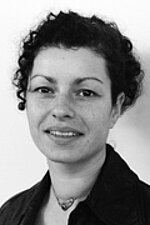Group 9: National and international assessments of adult literacy skills

Comparative Group 9: National and international assessments of adults literacy skills
adult literacy, skills surveys, competence assessments
Longitudinal assessments of adult literacy skills among a country’s population have a long history only in a limited number of rich economies located in the northern hemisphere (e.g. Canada). In both the northern and southern hemispheres, the introduction of similar assessments in an ever growing number of countries dates back only to the mid 1990s, when several countries became en-gaged in the realisation of large-scale, cross-country surveys aimed at producing harmonised data on adult literacy skills, under the co-ordination of Statistics Canada and the OECD (i.e. International Adult Literacy Survey – IALS, Second International Adult Literacy Survey – SIALS, Adult Literacy Skills Survey – ALL). In advanced economies these studies further advanced thanks to the OECD (i.e. Programme for the International Assessment of Adult Skills – PI-AAC), and served as prompt for similar efforts that, coordinated by the UNESCO Institute for Statistics (i.e. Literacy Assessment and Monitoring Program - LAMP), pay attention on less economically developed countries. As a result assessments of adult literacy skills are carried out world around today, and this independently from a country’s level of economic development.
The expected learning outcomes of this comparative group is to gain insights on: 1) different as well as similar national trajectories in the implementation of adult literacy skills surveys, and 2) the policy implications of large-scale, cross-country surveys that measure adult literacy skills for both national and transnational policy in adult education.
Comparative research question:
How and why are adult literacy skills measured? Such comparative research question applies to both national and international levels.
Context of comparison:
The main cases that will be compared are:
- The single countries to which students belong; and
- The main international organizations that coordinate (i.e. OECD, UNESCO) and/or support (i.e. EU) such efforts.
In comparing these cases, the comparative group will engage with a number of relevant interdependencies between:
- Policy tools for international governance in adult education,
- Harmonised measurements of adult literacy skills,
- Media coverage and national debates of adult literacy levels, and
- Policy at national level to increase literacy skills among the adult population.
Categories of comparison:
- Country’s official definition(s) and historical series of literacy rates (as recorded by national censuses). All countries rely on a procedure for the systematic acquisition and recording of information about its population (i.e. national population and housing censuses that are carried out usually every ten-years). Census data typically record also information that distinguishes (at the least) between literate and illiterate people.
- Country’s experience with national assessments of adult literacy skills. Some countries, in addition to census data, carry on one-off investigations or longitudinal studies on people’s literacy skills. When they do not, they may carry out studies from which information on adult literacy skills could be inferred (e.g. the United Stated Census Bureau did not collect data on adult literacy for many years, but had collected data on related subjects like English language proficiency).
- Country’s involvement in large-scale, cross-country assessments of adult literacy skills (i.e. IALS-SALS ALL, PIAAC, LAMP). In the 1990s approximately twenty countries were involved over the three rounds of IALS (1994, 1996, and 1998) from Europe, North America, South America and Oceania. In the 2000s ten countries from Europe, North America and Oceania took part in ALL (in 2003, 2006 or 2008); whereas, twenty-three countries participated in PIAAC’s first round (2008–2013), including most European countries, Canada, the United States of America, Japan, Korea, Australia and the Russian Federation (an OECD partner). More recently, a further nine countries joined PIAAC’s second round (2012–2016) from within the European Union and Europe more widely, Asia and the Middle East, Oceania and South America. Finally, a number of additional countries from South America, Africa, the Middle-East, the Palestinian Autonomous Territories, and South-East Asia are involved in LAMP.
- National media coverage of the PIAAC study (if applicable) or issue of adult literacy. Following the publication of PIAAC’s national reports and/or the realise of PIAAC’s international results by the OECD, national newspapers, televisions and other media have devoted more or less attention to cover this news, bringing public attention on adult literacy.
- Governmental plans, strategies and policy interventions to increase the literacy levels of the adult population. Alongside national participation to PIAAC as well as in reaction to its national and/or comparative results, several national governments, international organizations and other agencies have made plans, issued strategies or approved new laws or regulations in support of increasing the levels of literacy skills among adults with lower literacy skills.
References
Hamilton, M., Maddox, B., & Addey, C. (2015). Literacy as numbers: Researching the politics and practices of international literary assessment. Cambridge: Cambridge University Press (only Chapters 3, 4 & 6)
Prof. Marcella Milana, University of Verona, Italy
Prof. Marcella Milana specialises in adult education and comparative education, and researches adult education policies from national, cross-national and international perspectives. Prof. Marcella Milana holds a PhD from the University of Rome III, Italy. In 2005 she accepted an Assistant Profes-sorship in Competence Policy at the Danish University of Education, Denmark, then moved into an As-sociate Professorship in Adult Education and Competence Development at the University of Aarhus, Denmark, until she relocated to Italy in 2016.


